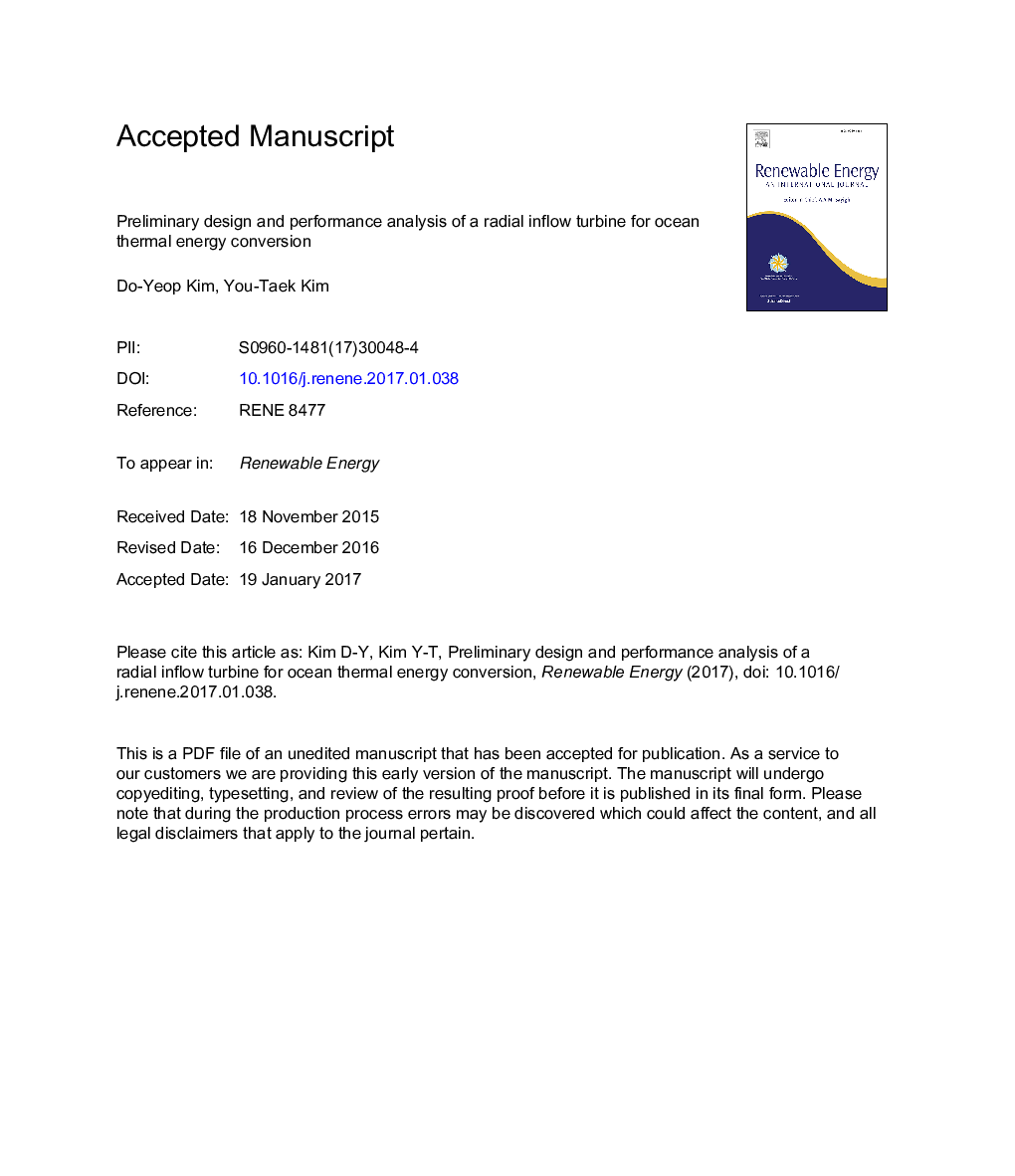| Article ID | Journal | Published Year | Pages | File Type |
|---|---|---|---|---|
| 4926395 | Renewable Energy | 2017 | 30 Pages |
Abstract
Ocean thermal energy conversion is an organic Rankine cycle for generating power using the temperature difference between surface seawater and deep seawater. The potential of ocean thermal energy is significant, and it is an environmentally friendly power system. However, its thermal efficiency is very low due to the low temperature difference between surface seawater and deep seawater. Hence, it is essential to develop a high efficiency turbine in order to improve the thermal efficiency of ocean thermal energy conversion. The precise preliminary design for the high efficiency radial inflow turbine requires selection of the appropriate flow and loading coefficients for the target efficiency. A new approach for the appropriate choice of flow and loading coefficients is proposed in this study. The meanline analysis and three-dimensional viscous simulations for the designed turbine are conducted in order to verify the proposed approach in design and off-design conditions. The results demonstrate that the optimum radial inflow turbine for the design conditions can be designed through applying the proposed model.
Related Topics
Physical Sciences and Engineering
Energy
Renewable Energy, Sustainability and the Environment
Authors
Do-Yeop Kim, You-Taek Kim,
